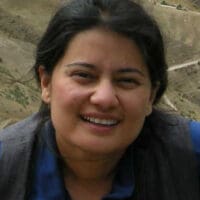Overview
What does successful activism look like? Laws against child labor, reservation quotas for scheduled tribes and castes, protection of wildlife preserves are examples of successful activism. Successful activism takes place when the positive change created in our societies becomes a norm that is adhered to by a majority. World Wildlife Fund has been fighting to keep the Mekong River, known as Dza Chu where it begins in the Tibetan Plateau, alive and free-flowing for the past two decades. How is WWF working to protect the Mekong River from largescale hydropower on its main stem, over-fishing of its unique fish species, and the impacts of climate change on a river that supports over 65 million people every day? In a situation where there are over eleven dams planned for the Mekong main stem, WWF’s activism consists of valuing the means as well as the end and awakening the collective consciousness in the region. Together with the Lower Mekong governments, the Mekong River Commission, the hydropower industry, the private and finance sectors, the larger NGO movement, and local communities, WWF hopes that the Mekong will be the world’s first declared free-flowing living river.
- Dialogue 238 sessions
- October 21, 2011Dharamsala, Himachal Pradesh, India
- ML23 Print Program |pdf|


